The following discourse on baptism is from the Rev. John Black [1768-1849], of whom we spoke earlier in the week. Rev. Black was a contemporary and close associate of the Rev. Alexander MacLeod, and would as well have known and been conversant with many other notable Presbyterians such as Samuel Miller, Jacob J. Janeway, and Ashbel Green. Rev. Black served as the first Stated Clerk of the Reformed Presbyterian Church in North America (New Light). As that body, through a series of mergers, eventually became part of the PCA, I suppose we could with a bit of stretching say that Rev. Black was the first Stated Clerk of the PCA. Or maybe not.
The opening portion only of this discourse is presented below. To read the full treatise, click the embedded link in the title:
THE SUBSTANCE OF SOME DISCOURSES ON BAPTISM;
delivered in the
First Reformed Presbyterian Church, in Pittsburgh.
By JOHN BLACK, D. D.
(1846.)
DISCOURSE.
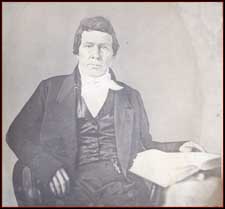 “Then Peter said unto them. Repent, and be baptized every one of yon in the name of Jesus Christ for the remission of sins, and ye shall receive the gift of the Holy Ghost. For the promise is unto you, and to your children, and to all that are afar off, even as many as the Lord our God shall call.” Acts ii. 38, 39.
“Then Peter said unto them. Repent, and be baptized every one of yon in the name of Jesus Christ for the remission of sins, and ye shall receive the gift of the Holy Ghost. For the promise is unto you, and to your children, and to all that are afar off, even as many as the Lord our God shall call.” Acts ii. 38, 39.
The feast of Pentecost was one of the three solemn feasts, in which all the males in Israel were commanded to appear before the Lord, in the course of the year, in the place which he should choose. Deut. xvi. 16. It is also called the feast of weeks, because forty-nine days, or a week of weeks, must be complete after the passover, and on the fiftieth day it was celebrated; hence called Pentecost, or the fiftieth day. It was also called the feast of harvest, because, at that time, the wheat harvest was ripe, and the first fruits were to be offered to the Lord. The object appears to have been, to render thanks to God for his mercies, and to commemorate the giving of the law from Mount Sinai. Did it not also prefigure the descent of the Holy Ghost in such plentiful effusion upon the disciples of Christ on the day of Pentecost, and how plentifully the first fruits of the Gentiles should give themselves unto the Lord? It is worthy of observation, that it was on the day of Pentecost—the fiftieth day from the Israelites’ departure from Egypt—that God gave the law from Sinai, and on that very day—the day of Pentecost, he caused the gospel law to be promulgated.
The Savior, before he ascended, commanded his apostles to remain at Jerusalem, until they should obtain the promise of the Father, and be baptized with the Holy Ghost; for which, he assured them, they would not have to wait many days. This promise was fulfilled ten days after his departure. Then was displayed a remarkable manifestation of the divine power. A sound from heaven, as of a rushing mighty wind, is suddenly heard, which filled the whole house where the disciples were sitting. And there appeared unto them cloven tongues, like as of fire, one of which sat down upon the head of each of them—an emblem of the diversified languages which they were now to speak. At the building of Babel, the language of the people was confounded and divided, and thereby the builders were scattered; but here the gift of various languages was given, that the scattered nations might be gathered to Jesus Christ, the shepherd and bishop of souls. The solemn occasion had gathered to Jerusalem strangers in multitudes, who, it appears, spoke fifteen different languages, all of which the disciples now perfectly understood, and distinctly and fluently spoke, as if they had been their mother tongue, although they had never learned them. This filled all with amazement; but some mocked, and ridiculed the whole transaction, ascribing it to inebriation. The apostles resented this invidious reproach, and Peter, who was the chief speaker, shewed plainly, that this was the fulfilment of the prophecy of Joel, ii. 28—31, and preached unto them Jesus whom they had crucified, in such a powerful, moving, and effectual manner, the Holy Spirit setting it home upon their hearts, that they said unto Peter, and to the rest of the apostles, Men and brethren, what shall we do? To which Peter answered, “ Repent, and be baptized every one of you in the name of Jesus Christ for the remission of sins, and ye shall receive the gift of the Holy Ghost. For the promise is unto you, and to your children, and to all that are afar off, even as many as the Lord our God shall call.” In considering these words, we propose the following method:
1. Offer some remarks on the nature of baptism. 2. Inquire who are its proper subjects? 3. The Scripture mode of baptism.
I. THE NATURE OF BAPTISM.
1. Baptism is a washing with water as a sacramental act. It had been long in use by the Jews in receiving their proselytes, but not by divine institution. Baptism supposes impurity in the subject. Indeed, all washing necessarily supposes this. That which is clean may be wet, but can- not properly be washed. But baptism is called washing. Eph. v. 26, “ That he might sanctify and cleanse it with the washing of water by the word.” The symbol is water only. It represents the blood of Christ applied by the Holy Spirit, Rev. i. 5: “Unto him that loved us, and washed us from our sins in his own blood.” The application of that blood is by the Spirit of Christ, Titus iii. 5: “ According to his mercy he saved us, by the washing of regeneration, and renewing of the Holy Ghost.” The blood of Christ cleanses meritoriously, 1 John i. 7: “The blood of Jesus Christ, his Son, cleanseth us from all sin.” The Spirit of Christ cleanseth us from all sin, by the effi- cacious application of the blood of Christ to the conscience. By the blood of Christ the guilt of sin is, at once, taken away in justification. The Spirit of Christ removes the blot and stain of sin gradually in sanctification. As water, free to all by the gift of heaven, when applied, washes and makes clean that which before was physically foul and unclean; so the blood of Christ, freely offered to all who hear the gospel, when applied by the Spirit, purifies from the guilt and pollution of sin, those who are morally defiled, and spiritually unclean. The instrumental administrators of baptism must be ministers of the gospel lawfully ordained, and no others. None have a right to act as commissioners, but such as have received a commission. The steward of a family is appointed by the head of the family. Jesus Christ, who alone is Lord in his own house, made all its laws, appointed all its offices and officers, and commissioned those whom he authorized to preach and baptize Before he ascended into heaven, he enlarged the commission of his apostles, which before his death had been restricted to the Jews: but now he authorizes them to go into all nations, whether Jews or Gentiles, and convert them to the faith of Christ, and promises to be with them always, even to the end of the world. The apostles were not to live to the end of the world. It could not, therefore, mean the apostles personally. Yet he says you. It must there- fore mean the officers, and that too, without the possibility of suffering the office to die, or the officers to become extinct to the end of time. The limit is the end of the world- the intermediate time, always. There never shall be an interregnum, or the office without an occupant, while the world stands. The apostles, as such, had no successors. The office, like that of the prophets, was altogether ex- traordinary. The claims of the Pope, and the no less groundless claims of diocesan bishops, to be the successors of the apostles, spring from ignorance of the gospel, and the government of the Church of God, as established by the Redeemer. The apostles possessed the ministerial, as well as the apostolical character; the ordinary office of the ministry, along with the apostolate. This is evident from the declaration of Peter in his 1st Epistle, v. 1: “The elders which are among you, I exhort, who am also an elder”—presbyter, or minister of the gospel. Now, to such characters, Christ gave the commission to preach and baptize. How daring, then, must it be for any who have not this commission, to undertake to preach and baptize. In 1 Cor. iv. 1, the ministers of Christ are called “stewards of the mysteries of God.” Are stewards self-appointed?
Or may they who are not appointed, act the part of stewards, as well as those who are? Since the extraordi- nary granting of commissions, in the days of the apostles, has ceased, the Scripture speaks of no way by which a commission is given, but by “the laying on of the hands of the presbytery.” 1 Tim. iv. 14. As a blessing was prayed for by our Lord, to attend the administration of the sacramental supper, so, by parity of reason, a blessing is to be prayed for, to attend the administration of the sacrament of baptism. This prayer sets apart the “sensible sign” in the sacrament, from a common to a sacred use. The water in baptism should, in this way, be blessed, as the bread and wine in the Lord’s supper, by praying for a blessing thereon.
2. Baptism is to be administered in the name of the Father, and of the Son, and of the Holy Ghost, to whom the baptized person is dedicated as covenant property. But as to immediate authority, like all other Church ordinances, it is administered in the name of Jesus Christ. Many mistakes have been made about baptizing in the name of Christ, and baptizing in the name of Father, Son, and Holy Ghost, as if they were different modes of baptizing. The truth is, both apply to every baptism. The mistake is in applying the same meaning to the word name, in both cases. Sometimes the word name means authority; thus a civil Court is opened in the name, that is, by the authority of the Commonwealth; and an ecclesiastical Court is opened in the name, by the authority of the Lord Jesus Christ. Again, name sometimes means property, or pos- session; thus a deed is made out in the name, or for the use, and as the property of some one. In the first sense, no ordinance is administered in the name of the Trinity. No ecclesiastical Court is opened in the name of the Father, Son, and Holy Ghost. True it is, that all power, and authority originally belong to God, Father, Son and Holy Ghost; but there is, by the God-head, a delegated authority and headship committed to the Lord Jesus Christ, that the preaching of the gospel, the administration of sacraments, and all church ordinances, shall be done in his name, and by virtue of his authority. Thus all who are baptized, are baptized in the name of Jesus. They are also baptized in the name of the Father, of the Son, and of the Holy Ghost, solemnly dedicated, and devoted, to be the covenant property of a three one God, to be for him soul and body, wholly and forever. Their engagement is to be the Lord’s and to take him as their portion forever.
3. Teaching must precede and accompany baptism. If the persons to be baptized were heathens, they must first be proselyted, and instructed in the faith. Mat. xxviii. 19: and all adults should be so indoctrinated, and instructed in the knowledge of Christ, and of the system of grace, that they shall be able to give a reason of the hope that is in them. It is the doctrine of Anti-Christ, that ignorance is the mother of devotion, while the Bible plainly declares, “My people are destroyed for lack of knowledge.” Hos. iv. 6. An ignorant man is represented as more stupid than the ox, or the ass. Is. i. 3: “The ox knoweth his owner, and the ass his master’s crib, but Israel doth not know, my people doth not consider.” Unless the person be previously instructed, he cannot have a firm persuasion that it is an ordinance of God. He cannot have a serious and thankful consideration of the nature of it, and of the end for which Christ instituted it. Every sacrament must be received by faith. But faith supposes knowledge. “How then shall they call on him in whom they have not believed, and how shall they believe in him whom they have not heard, and how shall they hear without a preacher?” Rom. x. 14.
4. As baptism is an enrolment of a new member of the church—an initiating into the visible society of the worshippers of the Lord Jesus Christ, it ought to be done publicly, in the face of the congregation. It is a declaration of visible membership, a distinguishing badge of discipleship, a sign whereby the followers of Christ are distinguished from pagans, or heathens, as the Israelites of old were distinguished from the uncircumcised nations around them. Private baptism is therefore contrary to the nature of the ordinance, a mean, and clandestine intruding of members into visible communion, as if by stealth. There is something in the very nature of the ordinance, that requires its public administration. The body of Christ is one, and the members of that body are also, “members, one of another.” Rom. xii. 5. And the apostle says, 1 Cor. xii. 13: “By one spirit are we all baptized into one body.” Baptism, therefore, presents to the body, another member initiated into their fellowship, and having a claim upon their prayers, their brotherly affection, their sympathy, and all good offices. Besides, the solemn ordinance, the vows and engagements of the person baptized, while calling for the accompanying prayers of the congregation, will also remind them of their own vows and engagements, and thereby excite to the improving their own baptism, and thus promoting their sanctification. Baptism, while in a certain sense, it is an initiating ordinance, yet does not originate the fact of church membership. Baptism supposes church membership, and yet it confers a membership which the unbaptized member did not enjoy. The fact of membership abstractly, is obtained, by making a profession of the faith of the gospel, or by being the infant seed of church members. This entitles to being recognized as a member of the organized visible church, to which the person is initiated by baptism. If attention is paid to the distinction between the kind of membership which is required to entitle to baptism, and the membership which baptism confers, it will refute the charge which is sometimes brought, of arguing in a circle, making membership the cause of baptism, and baptism the cause of membership. The distinction is obvious.
5. Baptism is not only a sign of church membership, as well as of Christ and his benefits; it is also a seal of the covenant of grace. A seal is used as a confirmation of bonds or deeds. Such was circumcision in the covenant made with Abraham, a “seal of the righteousness of faith.” Rom. iv. 11; and such is the seal of baptism, which comes in the room of circumcision, to all belivers, who are the spiritual seed of Abraham. By this seal Christ and his benefits are confirmed to the believer. These benefits are all the blessings contained in the promises of the new covenant, all embraced in grace here, and glory hereafter; Ps. lxxxiv. 11: “For the Lord God is a sun and shield, the Lord will give grace and glory.” A seal to a deed, covenant, or agreement, supposes the agreement made, the seal is a ratification of what the parties have agreed upon. A seal would be of no use without this agreement. None are agreed to God’s covenant but believers. I speak now of adults. Therefore, baptism seals nothing to any but believers. God promises every blessing to believers, and baptism is a seal of the covenant on God’s part, not to make the promise of the covenant more sure, for it is impossible for God to lie, his faithfulness is inviolable, and unchangeable; but to make the faith of the believer stronger. It is God’s ratifying to believers their right to covenant blessings with infallible certainty. And thus God, for the strengthening the faith, and removing the doubts of believers, condescends to bind himself in the most solemn manner, by bond and seal. Like as in Heb. vi. 18, where accommodating himself to the weakness of his people, he seals his promise with the solemnity of an oath. The blessings that are sealed to believers in baptism, are “remission of sins by the blood of Christ, regeneration by his spirit, adoption, and resurrection to everlasting life.” In baptism there is, as in every sacrament, an engagement to be the Lord’s—a renouncing the devil, the world, and the flesh, and an engagement to devote all that we are, soul and body, and all that we have, our gifts, graces, time, talents, com- forts and joys, to the glory of God. And this requires, to “deny all ungodliness and worldly lusts, to live soberly, righteously, and godly, in this present world.” In baptism the believer “sets to his seal that God is true,” John iii. 33, by believing his promises, receiving his testimony, and taking his law in the hand of the Mediator, as the rule of his faith, and obedience in all things. Adults in baptism, take these vows directly, and in their own persons. Children impliedly, through the representation of their parents. Parents are the natural guardians of their children. They are the most suitable persons to be their moral guardians, and representatives. Children are bound by the act of their representatives in civil things, and why not in the vows of baptism, if these vows are right—what the law of God requires? None can be bound by what is morally wrong, for all obligation is founded in the moral law, and what it forbids, can have in it no obligation—nothing binding on the conscience. Parents, in the baptism of their children, do not promise what their children will do, but what they themselves will do, in the discharge of the duties incumbent upon them, as Christian parents to their Christian offspring. Through their representation, the child receives the sacrament of baptism, and in that sacrament is contained the engagement to be the Lord’s, which, as we have seen, binds to all the duties which God’s law makes incumbent as a rule of life, to every one in their several places and relations, as superiors, inferiors or equals.


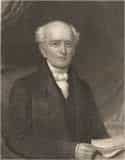
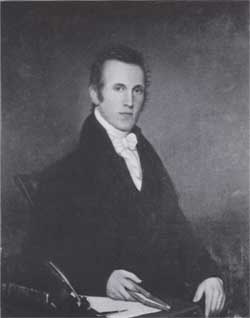
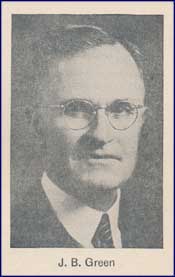
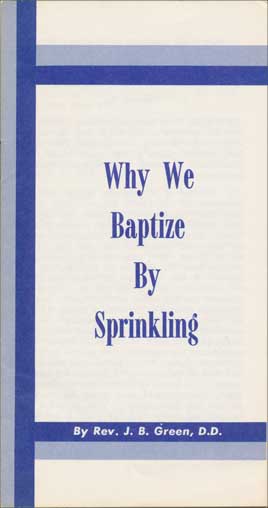 Because it is generally agreed that the Sacrament of the Lord’s Supper refers to the death and resurrection of Christ. If baptism also signifies the death and resurrection of Christ, then we have two Sacraments which are signs and symbols of the same facts of the life of Christ. Why this double representation of these facts? In that case we have no sign and symbol of the work of the Holy Spirit. In the Old Testament it was not so. There the passover pointed to the work of Christ, but circumcision pointed to the work of the Holy Spirit. For circumcision meant the putting away of carnality, the removal of the sinful flesh. This is the peculiar work of the Holy Spirit. Baptism means the same thing; it means the washing away of sin. We object to the immersion- ist’s view of the meaning of baptism for another reason. The burial of Christ has no redemptive value. Christ would have saved the world if he had not been buried. Why should a rite be ordained to signify a fact which is not essential to the accomplishment of salvation?
Because it is generally agreed that the Sacrament of the Lord’s Supper refers to the death and resurrection of Christ. If baptism also signifies the death and resurrection of Christ, then we have two Sacraments which are signs and symbols of the same facts of the life of Christ. Why this double representation of these facts? In that case we have no sign and symbol of the work of the Holy Spirit. In the Old Testament it was not so. There the passover pointed to the work of Christ, but circumcision pointed to the work of the Holy Spirit. For circumcision meant the putting away of carnality, the removal of the sinful flesh. This is the peculiar work of the Holy Spirit. Baptism means the same thing; it means the washing away of sin. We object to the immersion- ist’s view of the meaning of baptism for another reason. The burial of Christ has no redemptive value. Christ would have saved the world if he had not been buried. Why should a rite be ordained to signify a fact which is not essential to the accomplishment of salvation?